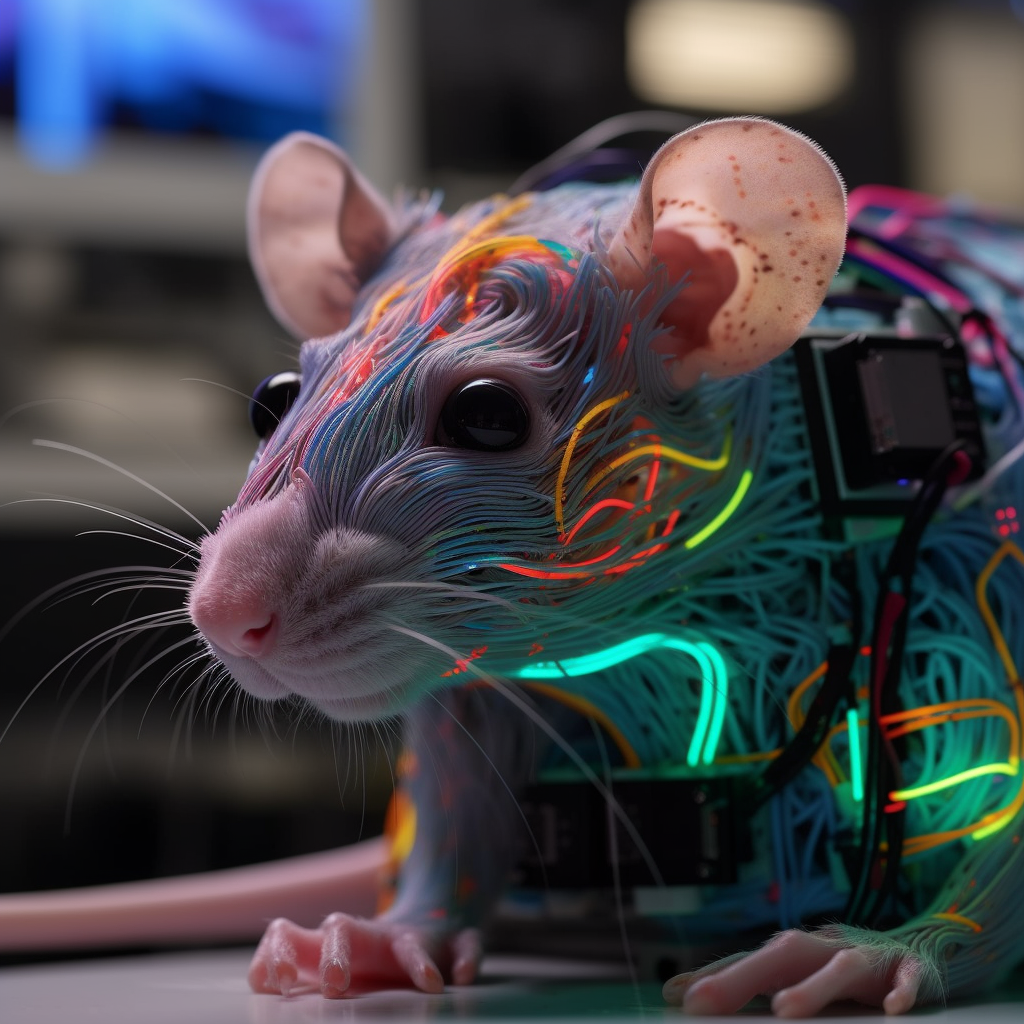June 14, 2024
Virtual Rat: A Groundbreaking Collaboration between Neuroscience and Artificial Intelligence
Book a Demo
Harvard neuroscientists, in collaboration with researchers from Google DeepMind, have created a virtual rat that can mimic the exact movements of a real rat. Using movement data recorded from actual rats, the team successfully constructed a biomechanically accurate digital model. Bence Ölveczky, a key figure in this groundbreaking research, led his team to train an artificial neural network that could control the virtual rat’s movements in a physics simulator called MuJoco.
The study revealed that the activations in the virtual control network could precisely predict neural activity observed in real rats performing the same behaviors. This pioneering collaboration has introduced a novel method of studying brain control over movement. This approach combines deep reinforcement learning and artificial intelligence with 3D movement tracking in freely behaving animals.
The virtual rat is capable of replicating a diverse range of behaviors, including those it hasn’t been explicitly trained on. This presents a new and dynamic model for studying neural circuits, with potential applications in improving robotic control systems. Interestingly, the neural activity of the virtual rat can predict the neural activity of a real rat more accurately than any features of the rat’s movements. This marks a significant advancement in understanding how brains control complex movements.
The virtual rat was created using the MuJoCo physics simulator, which incorporates realistic forces like gravity to mimic real-world conditions. The rat is driven by an AI neural network trained on inverse dynamics models. This innovative research holds the potential to lead to new therapies for movement disorders by recreating neural circuits.
Moreover, it provides a transparent model for studying neural circuits and the impacts of diseases on these circuits. The team is also planning on allowing the virtual rat to autonomously solve tasks faced by real rats. This would further enhance our understanding of brain algorithms for skill acquisition. This research offers promising prospects for the future of neuroscience and artificial intelligence.
Connect with our expert to explore the capabilities of our latest addition, AI4Mind Chatbot. It’s transforming the social media landscape, creating fresh possibilities for businesses to engage in real-time, meaningful conversations with their audience



